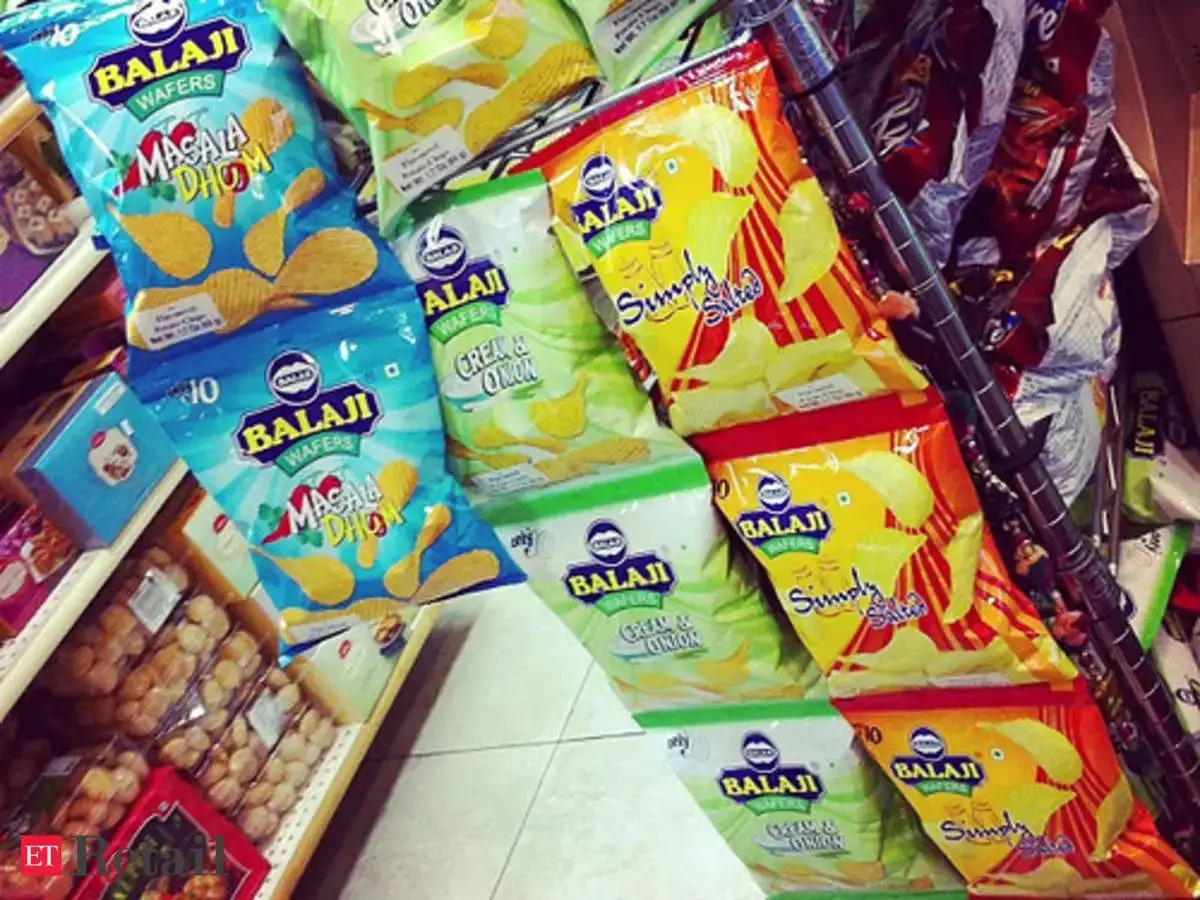India’s regional snack powerhouse Balaji Wafers has become the latest magnet for global investment interest, following the high-profile stake sale in Haldiram’s earlier this year. According to market reports dated September 12, 2025, FMCG majors ITC and PepsiCo, along with private equity firms TPG and Temasek, are in active talks to acquire a 10 percent stake in Balaji Wafers. The Rajkot-based company is seeking to raise Rs 1,000 crore to fund its expansion into southern and eastern India, marking a strategic shift from its stronghold in the western region.
This development signals a broader trend in India’s fast-moving consumer goods sector, where regional brands are increasingly outpacing legacy players in volume, agility, and consumer loyalty.
Key Highlights From The Investment Buzz
- ITC, PepsiCo, TPG, and Temasek are competing to acquire a 10 percent stake in Balaji Wafers
- The company aims to raise Rs 1,000 crore to expand operations beyond western India
- Balaji controls over 65 percent of the snack market in Gujarat, Rajasthan, MP, Maharashtra, and Goa
- Estimated valuation of Balaji Wafers stands near Rs 40,000 crore
- The company’s annual turnover exceeds Rs 5,000 crore
- Talks follow a similar 10 percent stake sale in Haldiram’s valued at over Rs 80,000 crore
Balaji’s Rise From Regional Player To National Contender
Founded by Chandu Virani and family, Balaji Wafers began as a small snack supplier at a cinema hall in Rajkot. Over four decades, it has evolved into a dominant player in India’s packaged snack segment, offering products priced 20 to 30 percent lower than national brands. With minimal advertising spend and a vertically integrated manufacturing model, Balaji has built a loyal customer base across western India.
The company operates four large factories and maintains tight control over production and distribution, allowing it to scale efficiently while keeping costs low. Its success has drawn comparisons to Haldiram’s, which recently sold a minority stake to global investors including Temasek and Alpha Wave Global.
PepsiCo’s Renewed Interest In Balaji
PepsiCo’s pursuit of Balaji is not new. In 2013, the global beverage and snack giant attempted to acquire a controlling stake of 49 to 51 percent, but the deal fell through due to resistance from the founding family. Now, PepsiCo is back in the race, this time seeking a minority stake of 10 percent, aligning better with Balaji’s preference for strategic partnerships over full buyouts.
The renewed interest reflects PepsiCo’s intent to strengthen its position in India’s value snack segment, where Balaji’s products directly compete with PepsiCo’s Lay’s and ITC’s Bingo.
ITC’s Strategic Play In Snacks
ITC, which entered the snack market in 2007 with its Bingo brand, is also eyeing Balaji to deepen its footprint in the packaged food space. The company has been expanding its FMCG portfolio aggressively and views Balaji as a complementary asset that can accelerate growth in tier-2 and tier-3 markets.
A stake in Balaji would give ITC access to a proven distribution network, regional brand equity, and manufacturing capabilities that align with its long-term strategy.
Private Equity Interest And Valuation Dynamics
TPG and Temasek, both seasoned investors in consumer brands, are reportedly evaluating the opportunity alongside strategic players. The proposed 10 percent stake could value Balaji Wafers at nearly Rs 40,000 crore, making it one of the most valuable regional FMCG brands in India.
The interest from private equity firms suggests confidence in Balaji’s scalability, profitability, and potential for a future public listing.
Forward Outlook
As India’s snack market continues to grow, regional brands like Balaji Wafers are becoming prime targets for global investors. The competition between ITC, PepsiCo, and private equity players underscores the strategic importance of capturing consumer loyalty in a price-sensitive, high-volume category. Whether Balaji chooses a strategic partner or a financial investor, the outcome will likely reshape the contours of India’s packaged food industry.
Sources: News18 Hindi, Economic Times, Business Today
